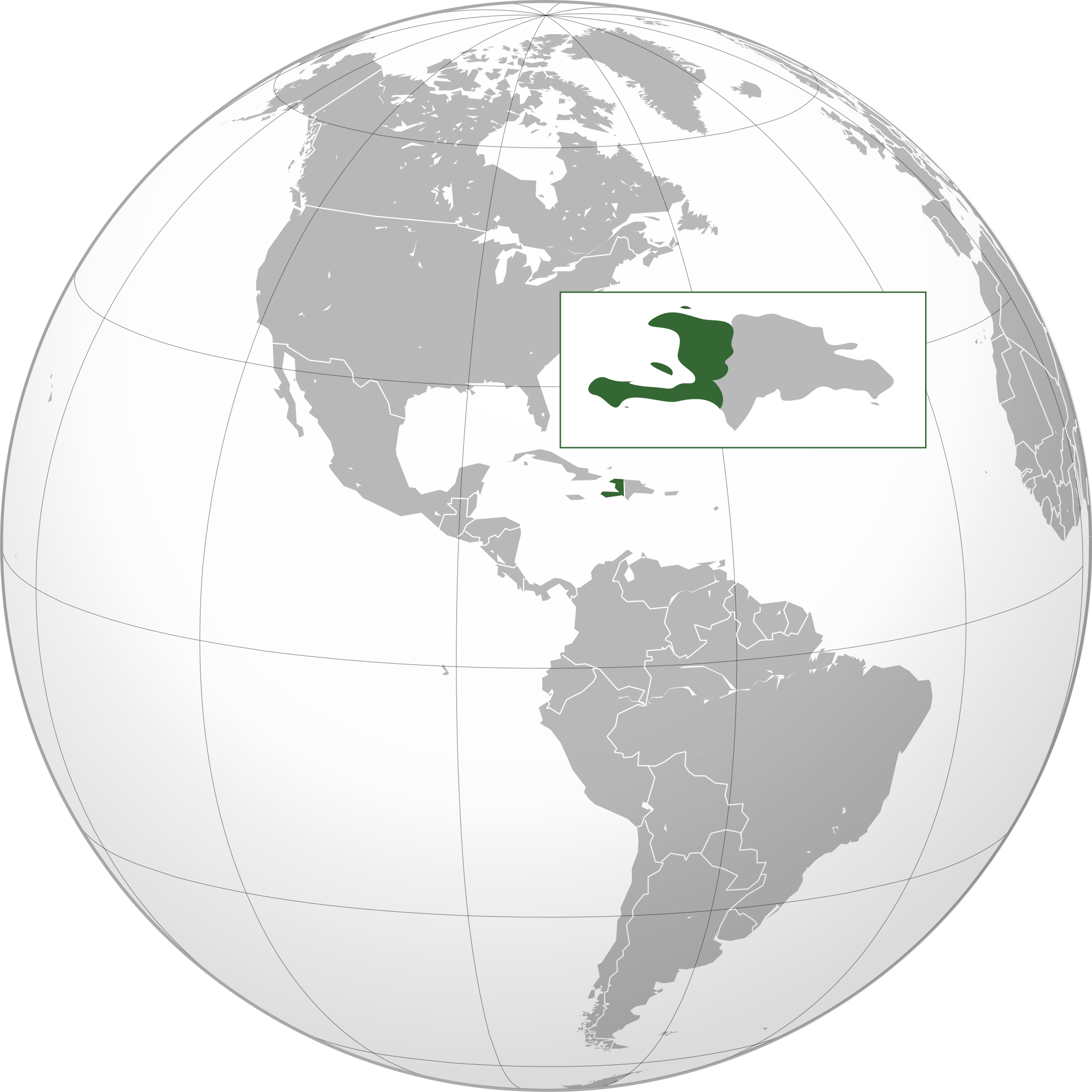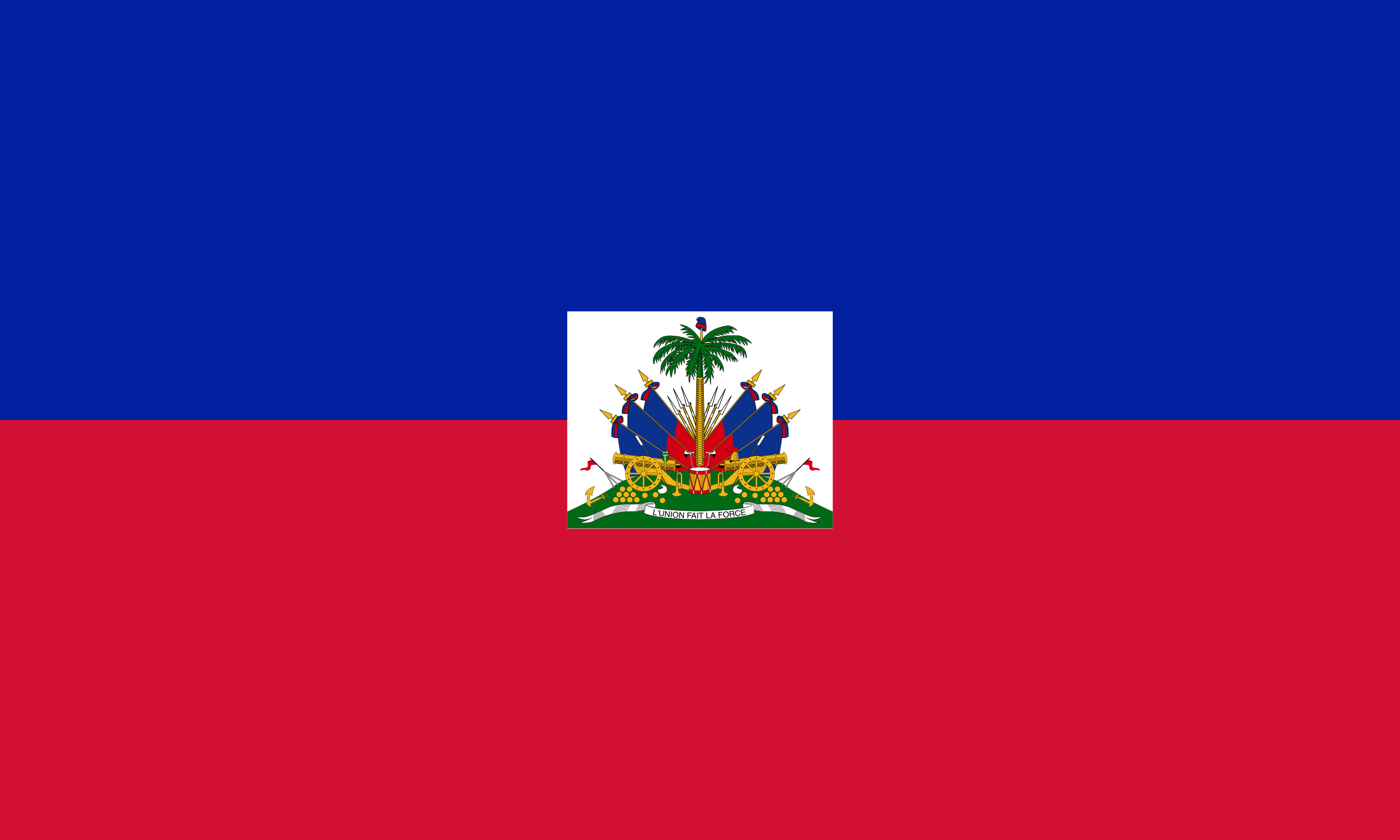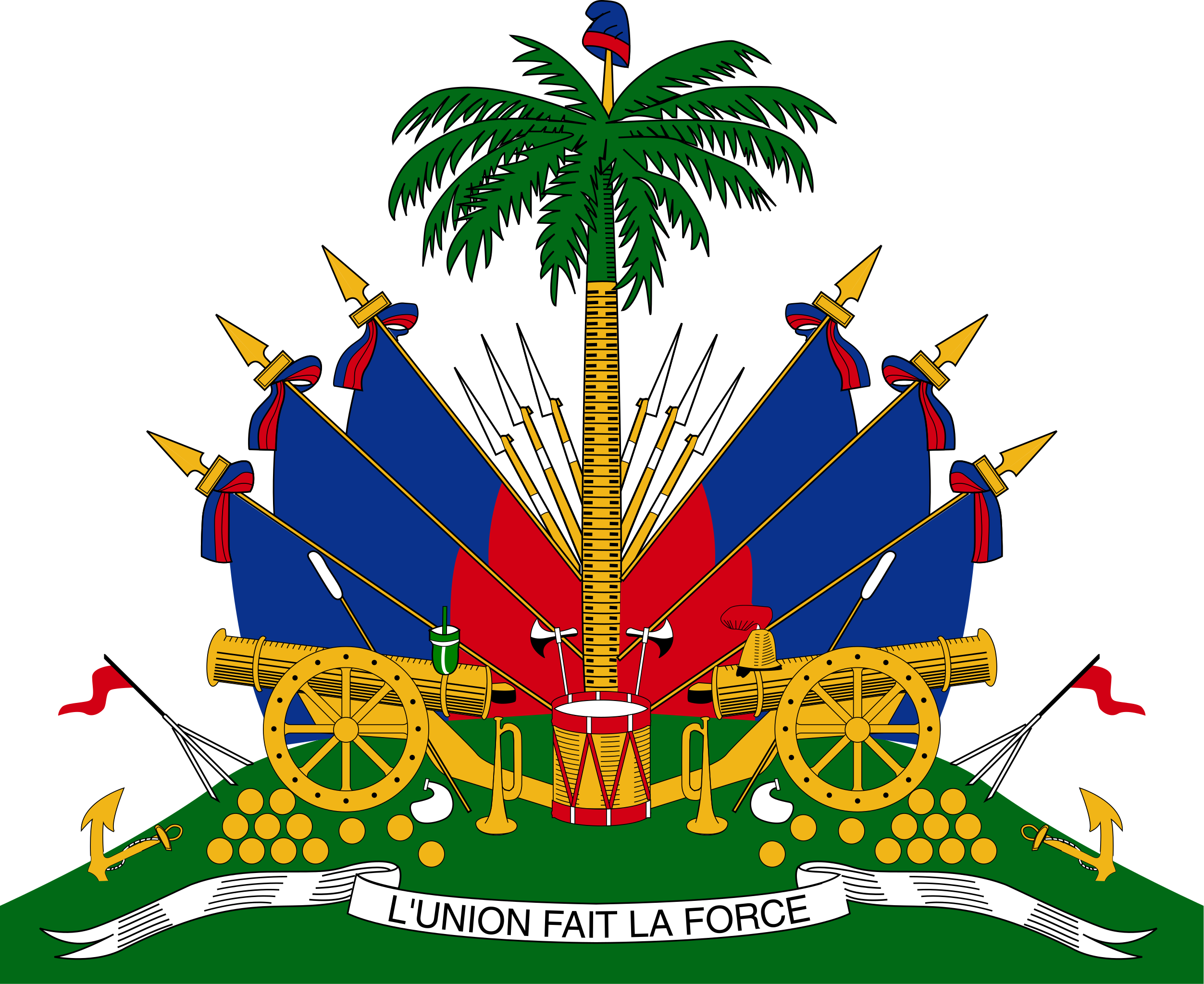More languages
More actions
mNo edit summary Tag: Visual edit |
(Liberation of Dominican Republic) Tag: Visual edit |
||
| Line 6: | Line 6: | ||
=== French colony === | === French colony === | ||
Before the [[Haitian Revolution]], slave traders imported up to 40,000 Africans a year to work on slave plantations in Haiti, which was then a French colony known as Saint-Domingue. The average life expectancy during this period was only 21 years and slaves had to work from dawn to late at night.<ref name=":0">{{News citation|author=Alex Johnson|newspaper=[[World Socialist Web Site]]|title=New York Times series The Ransom absolves capitalism for Haiti’s oppression|date=2022-06-21|url=https://www.wsws.org/en/articles/2022/06/21/ilte-j21.html|archive-url=https://web.archive.org/web/20220628230904/https://www.wsws.org/en/articles/2022/06/21/ilte-j21.html|archive-date=2022-06-28|retrieved=2022-06-29}}</ref> | Before the [[Haitian Revolution]], [[Slavery|slave]] traders imported up to 40,000 Africans a year to work on slave plantations in Haiti, which was then a French colony known as Saint-Domingue. The average life expectancy during this period was only 21 years and slaves had to work from dawn to late at night.<ref name=":0">{{News citation|author=Alex Johnson|newspaper=[[World Socialist Web Site]]|title=New York Times series The Ransom absolves capitalism for Haiti’s oppression|date=2022-06-21|url=https://www.wsws.org/en/articles/2022/06/21/ilte-j21.html|archive-url=https://web.archive.org/web/20220628230904/https://www.wsws.org/en/articles/2022/06/21/ilte-j21.html|archive-date=2022-06-28|retrieved=2022-06-29}}</ref> | ||
=== Haitian Revolution === | === Haitian Revolution === | ||
In August 1791, slaves began an uprising against their French colonial masters. It was the only successful slave revolt in the world. In 1801, [[Napoleon Bonaparte|Napoleon]] invaded Haiti in an attempt to reinstate slavery. Haiti declared independence in 1804. In 1825, French ships sailed to Haiti and demanded that they pay back former slave owners whose slaves had been freed in the revolution. From 1825 to 1857, Haiti spent an average of 19% of its revenue to pay back the debt. In 1888, France threatened to invade Haiti if it could not clear its debt.<ref name=":0" /> | In August 1791, slaves began an uprising against their French colonial masters. It was the only successful slave revolt in the world. In 1801, [[Napoleon Bonaparte|Napoleon]] invaded Haiti in an attempt to reinstate slavery. Haiti declared independence in 1804.<ref name=":0" /> | ||
In 1822, President [[Jean Pierre Boyer]] briefly occupied the eastern part of the island (now the [[Dominican Republic]]) and freed the slaves there.<ref name=":122">{{Citation|author=[[Domenico Losurdo]]|year=2011|title=Liberalism: A Counter-History|chapter=Crisis of the English and American Models|page=152|publisher=Verso|isbn=9781844676934|lg=https://libgen.rs/book/index.php?md5=5BB3406BC2E64972831A1C00D5D4BFE4|pdf=https://cloudflare-ipfs.com/ipfs/bafykbzacebhsj2yxuoudkhkjp6lzgr5jvgyhu76zxe4gw3d65gpg32a6nded4?filename=Domenico%20Losurdo%2C%20Gregory%20Elliott%20-%20Liberalism_%20A%20Counter-History-Verso%20%282011%29.pdf}}</ref> | |||
In 1825, French ships sailed to Haiti and demanded that they pay back former slave owners whose slaves had been freed in the revolution. From 1825 to 1857, Haiti spent an average of 19% of its revenue to pay back the debt. In 1888, France threatened to invade Haiti if it could not clear its debt.<ref name=":0" /> | |||
=== Statesian occupation === | === Statesian occupation === | ||
Revision as of 17:23, 21 May 2023
| Republic of Haiti République d'Haïti Repiblik d Ayiti | |
|---|---|
 | |
| Capital and largest city | Port-au-Prince |
| Dominant mode of production | Capitalism |
| Government | Semi-presidential republic |
• President | Ariel Henry |
| Area | |
• Total | 27,750 km² |
| Population | |
• 2018 estimate | 11,439,646 |
Haiti, officially the Republic of Haiti, is a country on the western side of the island of Hispaniola. Due to French colonialism and French and Statesian neocolonialism, Haiti is an overexploited country with an average daily wage of under $5.[1] Haiti has a starvation rate more than 50 times higher than nearby socialist Cuba.[2]
History
French colony
Before the Haitian Revolution, slave traders imported up to 40,000 Africans a year to work on slave plantations in Haiti, which was then a French colony known as Saint-Domingue. The average life expectancy during this period was only 21 years and slaves had to work from dawn to late at night.[3]
Haitian Revolution
In August 1791, slaves began an uprising against their French colonial masters. It was the only successful slave revolt in the world. In 1801, Napoleon invaded Haiti in an attempt to reinstate slavery. Haiti declared independence in 1804.[3]
In 1822, President Jean Pierre Boyer briefly occupied the eastern part of the island (now the Dominican Republic) and freed the slaves there.[4]
In 1825, French ships sailed to Haiti and demanded that they pay back former slave owners whose slaves had been freed in the revolution. From 1825 to 1857, Haiti spent an average of 19% of its revenue to pay back the debt. In 1888, France threatened to invade Haiti if it could not clear its debt.[3]
Statesian occupation
300 U.S. Marines invaded Haiti in 1915 and occupied it until 1934.[5] Only 16 invaders died, but they killed over 3,000 Haitians.[3] They murdered President Theodore Guillame Sam in the streets and replaced him with a puppet president. The USA established martial law and Jim Crow policies in Haiti during the occupation.[6]
Duvalier regime
In 1959, the CIA helped autocrat François Duvalier, also known as "Papa Doc," become the dictator of Haiti. His secret police killed 30,000[7] to 100,000[8] Haitians. In August 1959, a group of 30 Cuban and Venezuelan rebels arrived to try to overthrow Duvalier. The U.S. Navy and Marines, which were already in Haiti to train Duvalier's forces, defeated the rebels after 10 days of fighting.[9]
After Duvalier's death, his son Jean-Claude Duvalier became the leader of Haiti. In November 1985, the Haitian army killed four children in Gonaives, causing an uprising against the Duvalier regime. The US Air Force escorted Jean-Claude Duvalier from Haiti to France in February 1986 to protect him from the rebellion.[3]
Aristide presidency
Social democratic president Jean-Bertrand Aristide took power democratically in 1991 and was overthrown with CIA support[3] only seven months into his term.[1] In 1993, CIA-backed death squads killed scores of Aristide's supporters.[3] Aristide was restored as president in August 1994 and demanded that France pay back $21.7 billion that was extorted from Haiti. In addition, he doubled the minimum wage and launched a campaign to collect unpaid taxes from the rich.[1] The United States overthrew Aristide a second time in 2004 with the support of France and Canada,[10] and USA-backed UN troops invaded and occupied Haiti. The UN troops withdrew in 2017 after causing a cholera epidemic that killed 10,000 Haitians.[3]
U.S. invasion threats
After President Jovenel Moïse's assassination in 2021, the USA installed Ariel Henry as leader of Haiti. In 2022, Henry and the OAS called for another Statesian invasion of Haiti.[11]
References
- ↑ 1.0 1.1 1.2 Robert Roth (2022-06-06). "Haiti: The Ransom is Still Being Paid" Black Agenda Report. Retrieved 2022-07-06.
- ↑ "Malnutrition". World Health Rankings. Archived from the original on 2022-01-16. Retrieved 2022-02-07.
- ↑ 3.0 3.1 3.2 3.3 3.4 3.5 3.6 3.7 Alex Johnson (2022-06-21). "New York Times series The Ransom absolves capitalism for Haiti’s oppression" World Socialist Web Site. Archived from the original on 2022-06-28. Retrieved 2022-06-29.
- ↑ Domenico Losurdo (2011). Liberalism: A Counter-History: 'Crisis of the English and American Models' (p. 152). [PDF] Verso. ISBN 9781844676934 [LG]
- ↑ Michael Parenti (1995). Against Empire: 'Intervention: Whose Gain? Whose Pain?; A Global Military Empire' (p. 22). [PDF]
- ↑ Peter James Hudson, Jemima Pierre (2021-08-04). "Haiti: On Interventions and Occupations" Black Agenda Report. Archived from the original on 2022-06-12. Retrieved 2022-10-22.
- ↑ Jon Henley (2010-01-14). "Haiti: a long descent to hell" The Guardian. Archived from the original on 2022-01-27. Retrieved 2022-02-07.
- ↑ Steve Kangas. "A Timeline of CIA Atrocities" Archived from the original on 2022-01-02. Retrieved 2022-02-07.
- ↑ William Blum (2003). Killing Hope: 'Haiti 1959-1963: The Marines land, again' (pp. 145–146). [PDF] London: Zed Books. ISBN 1842773682
- ↑ Black Alliance for Peace (2022-10-19). "No to Foreign Military Intervention In Haiti! Yes, to Haitian Self-Determination!" Black Agenda Report. Archived from the original on 2022-10-20. Retrieved 2022-10-22.
- ↑ "PSL Editorial – No U.S. Invasion of Haiti!" (2022-10-11). Liberation News. Archived from the original on 2022-10-11. Retrieved 2022-10-12.


